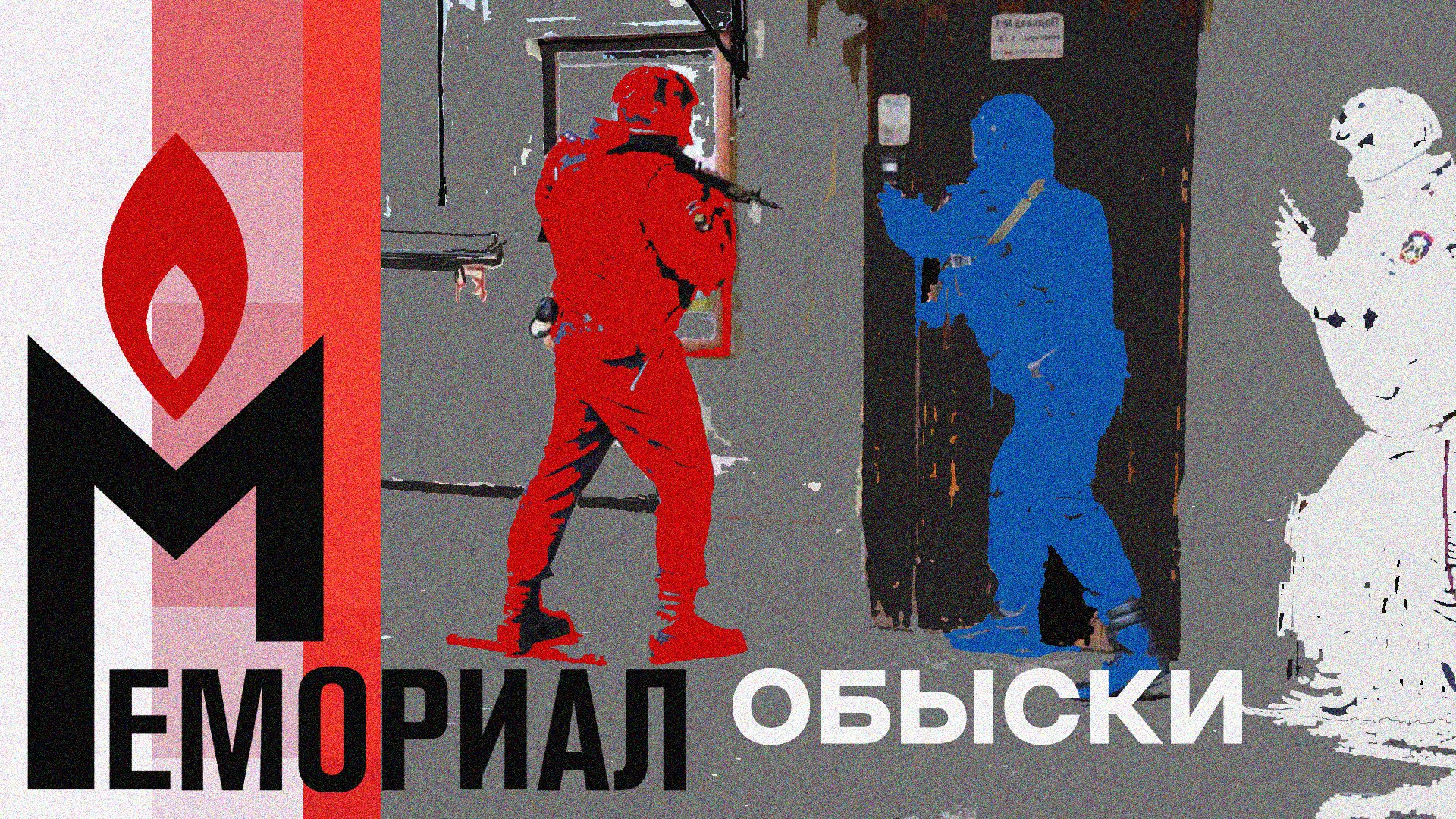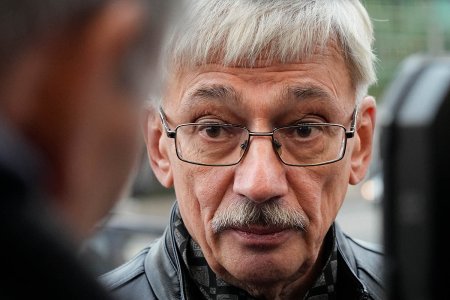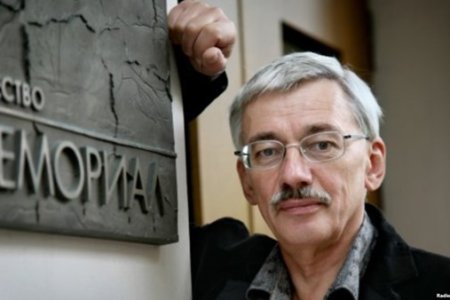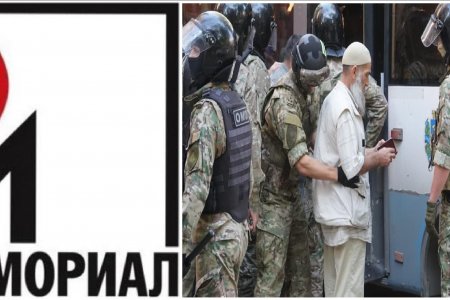
A court in Perm has remanded Aleksandr Chernyshov, Chair of the Perm Centre of Historical Memory (the legal successor to Perm Memorial), in custody for two months on a charge of quite breath-taking cynicism. After forcibly dissolving the Memorial Society, Russia’s oldest and most renowned human rights movement, and its branches, including Perm Memorial, the FSB have now come up with insane criminal charges against Perm Memorial Head Robert Latypov and Chernyshov, who was earlier a research assistant at Perm Memorial. As Latypov points out, the irony could not be greater. In 2022, the Russian authorities went to huge effort to “demonstratively” show that Russia had no need for such organizations and to dissolve Perm Memorial. The organization was supposedly of no value, yet its documents, around 90% of which are purely practical documents (communications with the authorities, minutes, grant applications, etc) are suddenly deemed to constitute ‘material of cultural value’, which Latypov and Chernyshov are now claimed to have been trying to ‘illegally smuggle out of the country.’
On 19 May, the FSB carried out a huge number of searches of the homes of members of the Perm Centre of Historical Memory, lawyers and human rights defenders, including two members of the Human Rights Council under the President. It was reported while some of the searches were still underway that the targets were being forced to sign non-disclosure agreements (under pain of criminal prosecution). The FSB also searched the home of Robert Latypov, although he is now safely abroad. Latypov later explained in an interview that he considers him to be the current Head of Perm Memorial. The Russian authorities may have achieved the dissolution of the legal entity, but they have not destroyed the organization’s essence. Indeed, he suggests that this is the problem for the current leadership of the country and the FSB who had hoped that the formal dissolution of the organizations would put an end to them. They are now, he says, looking for any pretext to go for representatives of the organization, hence the criminal charges which he dismisses as absurd. After the organization was legally dissolved, something had to be done with its documents, and it was decided that it would be safer to move these to Moscow. Neither was there, nor could there have been, any attempt to take the huge weight of material out of the country.
While the organization that Alexander Chernyshov chairs is the successor to Perm Memorial, it is legally unrelated to it. Not only does Chernyshov now have no legal relationship with Perm Memorial, but he never did hold a position which could make him answerable for the fate of the dissolved organization’s documents. It is Latypov, as he himself says, who answers for this. The FSB, however, needed a pretext, and a victim within the country and can, unfortunately, be confident that neither Russian prosecutors, nor judges, will ask inconvenient questions.
Chernyshov was detained on 5 May at Sheremetyevo Airport in Moscow on entirely absurd ‘hooliganism’ charges and jailed for 15 days. It became clear that he had disappeared at the end of this sentence, and was, it now transpires, arrested and taken to Perm. He has been remanded in custody for two months, with both he and Latypov facing charges of ‘plotting to smuggle cultural assets’ to Germany where Latypov is now living.
The FSB claim that ‘experts’ have found that some of the documents contain “cultural and historical value”. It is quite likely that the FSB have again turned to a highly dubious outfit called the ‘Centre for Socio-Cultural Expert Assessments’. This centre and particularly its co-founder Natalia Kryukova and translator Alexander Tarasov have provided ‘loyal service’ to the FSB in a number of notorious cases involving political or religious persecution. Both Kryukova and Tarasov were used to justify the extraordinary allegations used to dissolve the vital Memorial Human Rights Centre, and Kryukova also obliged with providing flawed ‘assessments claiming justification for the persecution of Karelia Memorial Head and historian of the Soviet Terror Yury Dmitriev and the Jehovah’s Witnesses.
In October 2022, just hours after the announcement in Stockholm that the International Memorial Society was one of the three laureates of the 2022 Nobel Peace Prize, a Moscow court rubberstamped the eviction of the Memorial Research and Educational Centre from its centre. This was, purportedly, because of its ‘destructive activities’ – essentially those same activities for which Memorial was awarded the Nobel Peace Prize.
Then in March 2023, mass raids were carried out in Moscow at the offices of the Memorial Society and homes of its members. The Co-Chair of the Memorial Society, Oleg Orlov is now facing criminal charges and a likely prison sentence for supposedly ‘discrediting the Russian armed forces’. The above-mentioned fake ‘experts’ Kryukova and Tarasov have provided the ‘assessment’ aimed at convicting Orlov as well.
It was the Perm Region that saw the first concentrated attack on a museum informing the public about Soviet repression and its victims. The Perm-36 Museum was at the site of the notorious Soviet labour camp where many Ukrainian political prisoners were held, and where the great Ukrainian poet Vasyl Stus died in 1985. A supposed initiative by the local authorities against the Museum coincided with programs on the pro-Kremlin television channel NTV accusing the Museum and its staff of “re-writing history and glorifying Bandera supporters and fascists”.
‘Perm-36’, the NGO which had run the museum was given no choice but to give this up. It was also forcibly registered as a so-called ‘foreign agent’ and steeply fined for not registering itself. The organization has been ordered to pay 300 thousand roubles, and the former director Tatyana Kursina – 100 thousand.
Although the museum officially continued to exist, by 2015 it had been turned into an institution that carefully avoided mentioning Stalin, the Gulag or the dissidents who were held, and some who died, at the camp.
Then in November 2019 there were searches by FSB and so-called ‘centre for countering extremism’ officers against volunteers tending the graves of victims of Stalin’s crimes with criminal proceedings initiated (details here).
Even before the new waves of repression following Russia’s full-scale invasion of Crimea, these measures were taking place against a background of ‘historical revisionism’. The latter has resulted in prosecutions against people who rightly say that the Soviet Union invaded Poland in 1939 and increasing ‘rehabilitation’ of Soviet dictator and mass murderer Joseph Stalin, and silence or downright lies about his victims.



